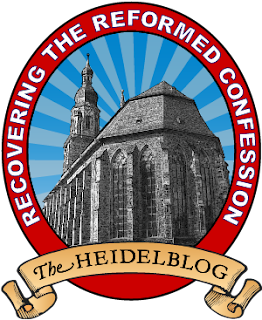“Relevance” Leads Back To Rome
By Dr. R. Scott Clark - Posted at The Heidelblog:
In the Western church calendar Lent began yesterday on “Ash Wednesday.” Lent did not exist in any form in church law until 325 where the word appears in Canon 5 of the canons of Nicea. Even then there is no detailed prescription in the canon itself. The 4th century was, in many ways, transformative for the theology, piety, and practice of the church and not always for her benefit. We know that very early on there was deep concern (e.g., the Quartodeciman controversy) over the correct time to observe Easter but beyond that the church calendar was sparse. By the time of the Reformation, however, the church calendar (or the liturgical year) became so extensive that there was something to be observed (e,g., feast days) virtually every day of the year. The origins of Ash Wednesday itself can be no earlier than the early medieval period. Once Lent entered Christian practice, it began on a Sunday. It was only moved to what became “Ash Wednesday” “later” (so the Oxford Dictionary of the Christian Church) in order to bring the observance to 40 days (in imitation of Christ’s 40 days in the wilderness, no doubt). There is nothing of Ash Wednesday or Lent in the earliest post-apostolic Christian theology, piety, or practice. The date for Easter was controversial was because both sides were arguing over which date was more biblical. No one was arguing in the early 2nd century that the church has authority to impose practices and observances that are not imposed in Scripture.
In other words, the very practice of Ash Wednesday and Lent are simply made up observances and this is the problem. It is not that one might not learn something valuable by abstaining from this or that for 40 days or that there is no value in gathering on Wednesday 40 days before Easter to remember the suffering and death of our Savior. The problem is that the human heart is an idol factory (Calvin). Once it is given license to create and impose Christian observances, it never ends. What begins with good intentions becomes a form of bondage. This is not a new problem. The Apostle Paul opposed this very thing in his epistle to the Colossians: ...



